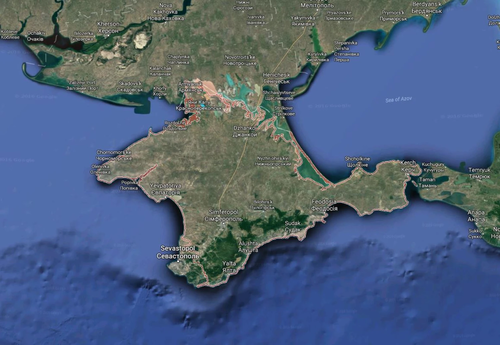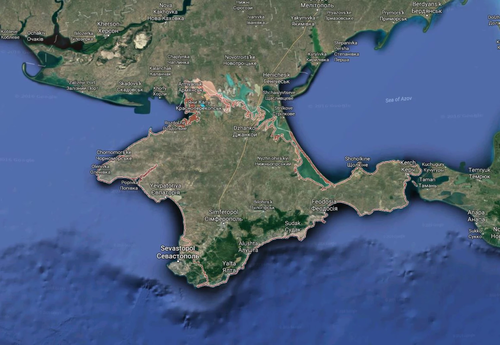This article was originally published by Tyler Durden at ZeroHedge.
In a bit of an about-face for Washington based on past officials’ more aggressive posture, US Secretary of State Antony Blinken now says the administration is not actively encouraging Ukraine to seize Crimea.
Politico reports of his words that “A Ukrainian attempt to retake Crimea would be a red line for Vladimir Putin that could lead to a wider Russian response, Secretary of State Antony Blinken said in a Zoom call with a group of experts Wednesday.”
Specifically, the top US diplomat said America is not “actively encouraging” Ukraine to liberate Crimea from Russia, the Wednesday report said.

Via Google Maps
Instead, any potential future Crimea offensive will be “Kyiv’s decision alone” – this despite a recent past history of rhetoric out of both Republican and Democratic administrations which have continually asserted over the years that “Crimea is Ukraine.”
The response was prompted by a reporter’s question on whether or not the US would assist Ukraine in retaking all territory previously seized by pro-Kremlin forces. Politico details more of Blinken’s response as follows:
Blinken, according to two of the people, gave the impression that the U.S. doesn’t consider a push to retake Crimea to be a wise move at this time. He didn’t say those words explicitly, they underscored.
Two other people didn’t take Blinken’s comments that way. The secretary remarked that it is solely the Ukrainians’ decision as to what they try to take by force, not America’s. That signaled to them that Blinken was more open to a potential Ukrainian play for Crimea.
All of this comes as Western media and officials reluctantly acknowledged that Russian forces have the upper hand in Donetsk and are poised to take the strategic city of Bakhmut, having it surrounded.
Meanwhile, NATO secretary general Jens Stoltenberg this week issued a rare admission concerning the history of the Russia-Ukraine conflict.
Stoltenberg admitted that the war in Donbass has been going on since 2014 – which appears to validate a key aspect of Russia’s framing of the conflict narrative and why Putin ordered the invasion:


